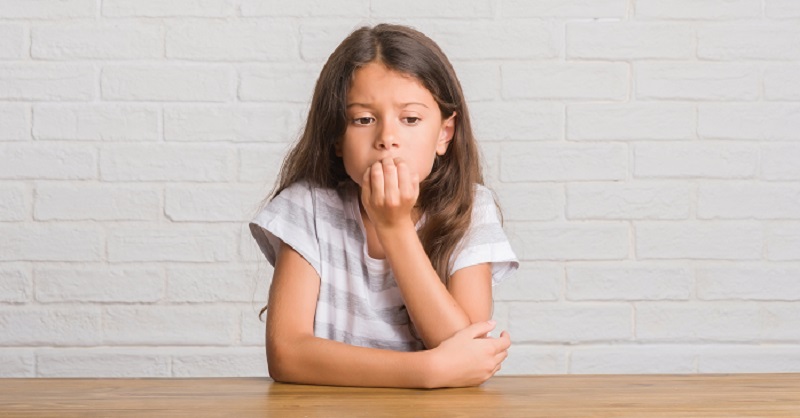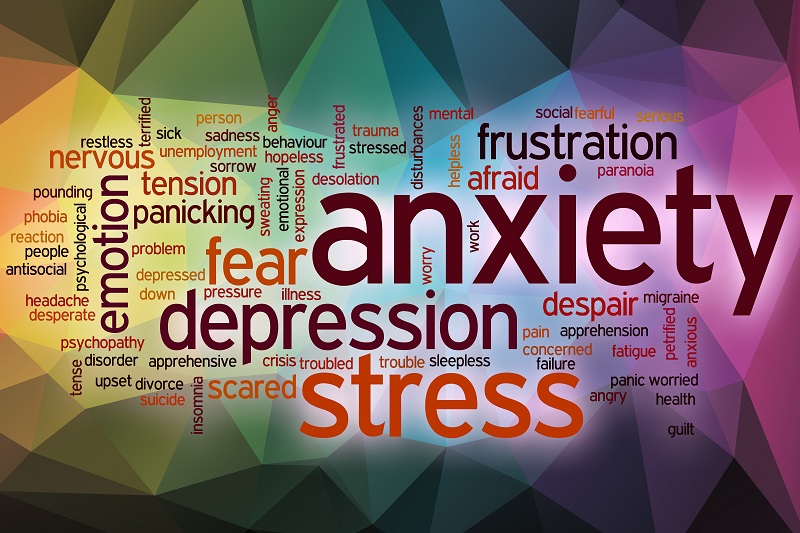Anxiety Disorders in Children

Anxiety Disorders in Children?
Are you a parent or helping professional who is worried about anxiety disorders in children? Do you wonder if a young person is at increased risk of developing an anxiety disorder, or whether he or she currently suffers from one?
You are not alone.
Child Anxiety Disorders are the most common psychiatric disorder in children and adolescents, with the literature indicating that 1 in 12 children and 1 in 4 adolescents suffer from an anxiety disorder. 1
Anxiety disorders in children comprise a number of specific anxiety related diagnoses, and may present in different ways. Anxious children often appear worried and fearful, they may show timidity about separating from parents, elevated levels of anxiety related to social situations and worries about how they will be judged and perceived by others. Anxious children may also show high levels of physiological arousal, including problems with concentration, paying attention and sitting still.
When children exhibit high levels of anxiety their parents and teachers worry. What is the problem? Why is the young person showing elevated levels of anxiety? What is contributing to and maintaining the young person's anxious behaviors? And what can they do to help?
All of us feel anxious sometimes. It is just part of life. We all know what it is like to feel worried, anxious, nervous or fearful. This is as true for children, as it is for adults. However, most of us are able to manage our anxious feelings. We learn to cope with them and are able to carry on despite them. A child anxiety disorder becomes a problem when the young person finds it difficult to manage his anxious feelings and becomes stressed, upset and unable to cope with everyday challenges.
For these young people feelings of anxiety are constant and far more pervasive than an occasional wave of apprehension or anxiety. Anxious feelings and behaviors dominate and interfere with healthy child functioning and optimum development.

Common Child Anxiety Disorders
Social Anxiety Disorder: Children who suffer from social anxiety feel self-conscious and fear being around other people. Some of these children may feel that everyone is watching and staring at them or being critical in some way. These children will avoid social situations and other people. In severe cases, children with a social anxiety disorder may prefer to be alone much of the time. They often suffer from performance anxiety and may show concerns around feelings of rejection and humiliation.
Other children or adolescents who suffer from social anxiety know their thoughts and fears are irrational. They know others are not really judging or evaluating them at every moment. But this knowledge does not make their fears and anxieties disappear, nor does it make it any easier for them to engage in social interactions.
Panic Disorder: Children who suffer from panic disorder have panic attacks without warning. A panic attack usually lasts several minutes and can be extremely upsetting and frightening. In some cases, panic attacks last longer than a few minutes or occur several times in a short period. A panic attack is frequently followed by feelings of depression and helplessness. For these children, their greatest fear is that a panic attack will happen again. Often the child doesn't know what caused the panic attack. It seems to come out of the blue. At other times, the child may report that he or she was feeling stressed and upset and expected the panic attack.
Generalized Anxiety Disorder. Anxiety in children or adolescents may also present as a generalized anxiety disorder. Children who suffer from a generalized anxiety disorder are filled with worry, anxiety and fear. They constantly think about and dwell on the "what ifs" of the situation. They feel trapped in a destructive cycle of anxiety and worry and are vulnerable to feeling depressed. These children and adolescents feel incapacitated by their inability to shut the mind off, and are overcome with feelings of worry. In addition, the child's mood may change regularly, perhaps daily or even hour to hour. The child's feelings of anxiety and mood swings become habitual and disrupt the child's ability to cope with everyday life.
Children with generalized anxiety disorder frequently exhibit physical symptoms, including headaches, irritability, frustration, trembling, problems with concentration and sleep disturbances. They may also exhibit symptoms of social withdrawal and panic disorder.
Other Types of Child Anxiety Disorders:
- Phobias: Fear of a specific object or situation.
- Obsessive-Compulsive Disorder (OCD): A system of ritualized behaviors or obsessions that are driven by anxious thoughts.
- Post-Traumatic Stress Disorder (PTSD): Severe anxiety that is triggered by memories of a past traumatic experience (now included in the DSM-V under Trauma and Stress Related Disorders).
- Agoraphobia: Disabling fear that prevents the child from leaving home or other safe places
Understanding the Problem is the Key to Solving It
Dr. O'Connor provides in depth, comprehensive school neurpsychological assessments to get to "the root of the problem," in this case, what is contributing to and maintaining the elevated levels of anxiety the young person exhibits.
A
psychological assessment can help "get to the root "of the anxiety
symptoms that present in a young person, and lead to evidence based
interventions to address these concerns.
The school neuropsychological assessment provides a detailed, comprehensive understanding of the problem. It leads to diagnoses that apply to the problem and provides the foundation required to support evidence based interventions to address it. Without a comprehensive assessment to provide this understanding and what is contributing to and maintaining the anxiety and related behaviors and worries, it will be difficult to address.
Psychological Testing Can Help

Dr. O'Connor tailors the Psychological Testing Services she offers including school neuropsychological assessments, to the specific needs of an anxious child.
Psychological testing increases understanding of any anxiety symptoms the child shows, and any other psychological concerns he or she exhibits. Psychological Testing increases understanding of anxiety disorders in children, and how to help the young person who suffers from elevated levels of anxiety.
Children of anxious family members are at greater risk of developing an anxiety disorder themselves.
The psychological assessment can help determine how a child is coping when a parent suffers from an anxiety disorder, and whether or not he or she meets the the criteria for an anxiety disorder, or is at risk of developing one.
The psychological assessment also helps determine where things are going well, where the young person's strengths lie and how and where you might need to intervene to help?
Dr. O'Connor's psychological assessment report includes her interpretation and summary of the test findings and practical, effective solutions to help with anxiety disorders in children. These recommendations include strategies to promote positive outcomes in children, and encourage healthy coping behaviors.
Recommendations will also integrate understanding of the child's strengths and "what works " with a particular child.
Dr. O’Connor's report includes a summary of the child’s strengths and needs, an overview of Dr. O’Connor’s view of the problem, recommendations to address it and options for further exploration. If appropriate, she will also refer the child and/or his family to relevant resources that can provide further support and understanding about how to help the anxious child.
Click here to learn more about anxiety disorders in children.